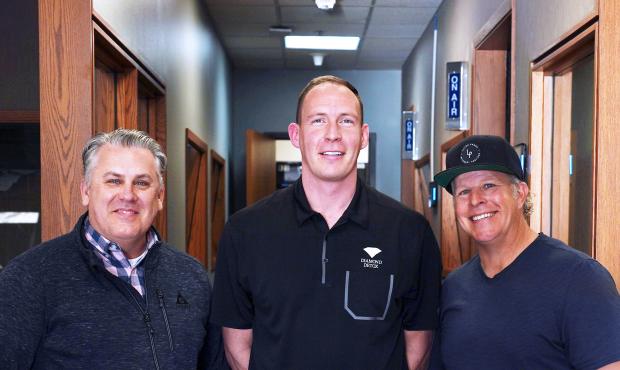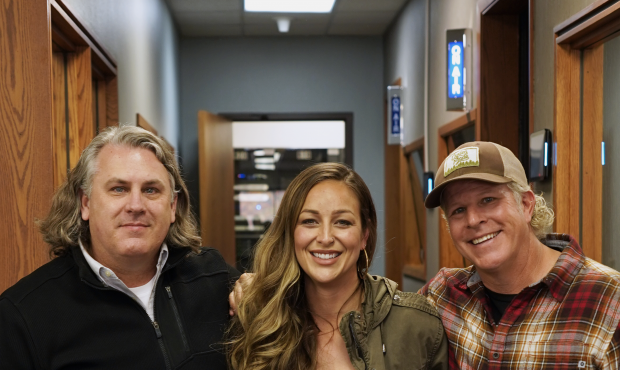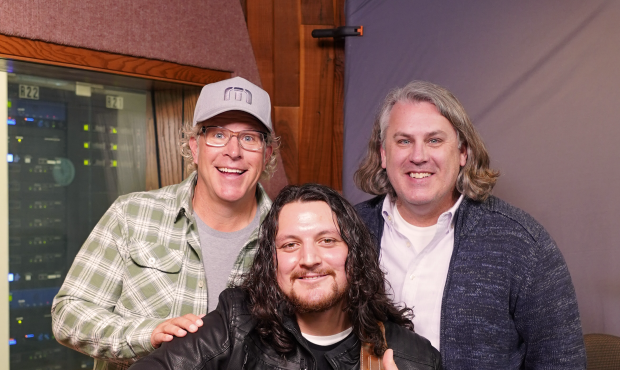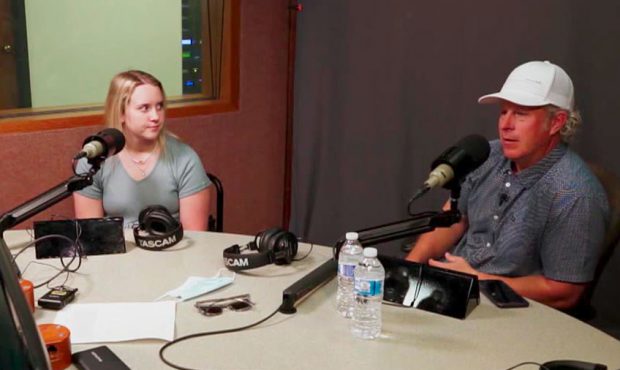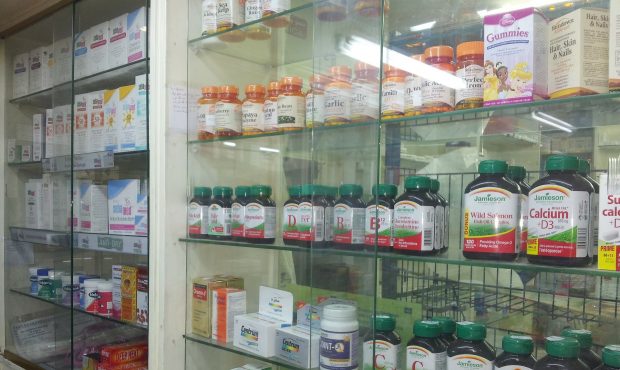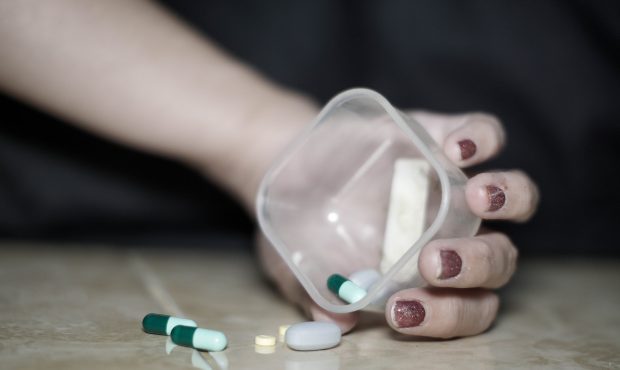Addiction Through A Daughter’s Eyes: How Teen’s Letter Impacted Casey Scott
Mar 15, 2021, 10:28 PM | Updated: Mar 20, 2021, 12:27 pm
FARMINGTON, Utah — As many know firsthand, addiction is a family disease. It doesn’t just affect the individual struggling, but everyone who loves them. That perspective has resonated with millions of people after a recent viral video.
Casey Scott has shared his very public journey with addiction and recovery. Now sober for almost three years, he hosts the weekly KSL podcast “Project Recovery.” Scott recently read a paper his 16-year-old daughter, Preslee, wrote for an English class on his podcast. The video has been watched by 2.8 million people on social media.
KSL-TV sat down with Casey and Preslee to hear more of their story.
A Family Disease
Scott has always been known as the fun guy. He’s a dad to three children and was the morning feature reporter on KSL-TV for years. But all that changed as his addiction to alcohol grew worse.
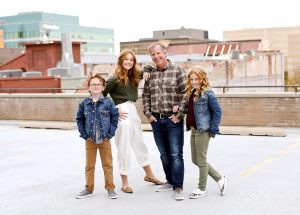
Casey Scott has always been known as the fun guy. He is a dad to three children and was the morning feature reporter on KSL-TV for years, but all that changed as his addiction to alcohol grew worse. (Courtesy Casey Scott)
“I wasn’t a fun dad to be around. I slept a lot. I yelled a lot and I wasn’t present,” Scott said. “We started this interview by saying, ‘What is family?’ Family is everything to me, but in my addiction, it wasn’t.”
Understanding what that was truly like for his children only came after Scott’s oldest daughter, Preslee, expressed her feelings in an English assignment.
“It was just a personal narrative about something that changed our life,” Preslee explained.
Preslee said she knew exactly what she wanted to write about, unlike some of her classmates. “I was kind of excited to write everything down because I’d never written anything or talked about it really to anyone before, so it was kind of like my way of releasing it all.”
“Her English teacher reached out to me and said, ‘Your daughter wrote this pretty amazing thing,'” Scott recalled. He asked Preslee if she would send the paper to him.
“I read it by myself for the first time and I bawled,” Scott said. “It was too raw, too real. It was like watching a scary movie. I got up, put it down and walked away, collected my thoughts, came back, and sat down and finished it.”
Eventually, Scott decided others needed to hear the power of his daughter’s words, which is when he read Preslee’s narrative on his podcast, KSL’s Project Recovery.
Preslee began by writing: “For as long as I can remember, my dad has been an alcoholic. I remember going to parties with my dad driving there, but my mom would always be the one to drive us home.”
Preslee then described her fear of her parents’ pending divorced, the tough reality of going back and forth between homes, the frustration of fighting with her drunk father over ‘the most stupid things’ like dishes, the weight she felt of having to babysit her younger siblings when her dad was intoxicated and the embarrassment she felt when her father was arrested after causing a crash while driving under the influence in Kaysville on Sept. 2, 2018.
“It was on the news everywhere and … it was just hard to know that my whole like family and personal stuff was just everywhere and I couldn’t really escape it,” Preslee said. “Going to school was hard and having kids come up to you in the halls asking how your dad was.”
“How fun was that for my kids to go to school? And instead of saying, ‘Hey, look at your dad, he did all that cool stuff on TV,’ there’s your dad and it’s a mug shot,” Scott said. “It’s tough enough being a kid, [but] for me to throw that on top of that … not cool. That’s not what a dad does. I’m there to lighten their load, not make it heavier.”
Impact On Children
Dr. Matt Woolley is a clinical psychologist and professor of psychiatry at the University of Utah. He’s also Scott’s co-host on Project Recovery and says addiction is especially detrimental to children.
“A child needs a parent to be present,” he said. However, Woolley explained addiction creates disconnection preventing a parent from providing that basic need.
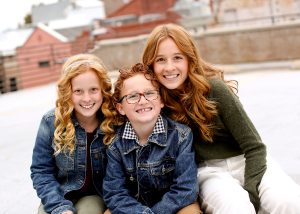
Coming to understand what Casey Scott’s addiction was truly like for his children only came recently when Scott’s oldest daughter, 16-year-old Preslee Scott, expressed her feelings in an English assignment. (Casey Scott)
“That neglect is damaging to their developing sense of self, their identity, who they are, who they believe they are, and it’s also a very lonely place to be,” Woolley said. “You may have shown up to all the ballet recitals, but you don’t remember them, and the kids don’t feel that you’re there.”
Woolley said children are particularly vulnerable.
“Often their needs go unlistened to [and] unmet when a parent has an addiction,” he said. “For young people, it’s pretty hard because there’s a huge power differential. Children are looking to their parents for cues on how to be empowered, how to get your needs met.”
“It was hard to see like, my best friend and the person that’s supposed to take care of me go through such a hard time, because it almost made me feel like I was also going through that hard time, because I was,” Preslee explained.
Scott now admits he didn’t always see it that way.
“I used to always say to my ex-wife and my kids, ‘What do you care? This is me and my body, I’m doing what I want,'” he said. “But I didn’t realize the carnage that I was causing, the rifts in my family that I was creating with my mom, my dad, my brothers, my children.”
Scott particularly remembers one tough day after the crash. He had lost his driver’s license, his job and wasn’t sure how he was going to pay his rent. Scott felt like everyone was piling up on him.
“And I said, ‘Hey, look what I’ve been through, lighten up a little bit,’ and without missing a beat, Preslee goes, ‘Really Dad? You think you’re the only one that went through this?’” Scott recalled. “And it was like somebody had sucked the wind out of the room and I was just like, ‘Huh,’ and that’s when it dawned on me.”
Path To Healing
Through recovery, Scott’s perspective has changed. “Addiction really is a family disease,” he said. “I didn’t realize when I got that letter, what a gift it truly was. The power of one 16-year-old little girl – it’s amazing!”
The video of Scott reading Preslee’s letter now has 2.8 million views.
“I think it just resonated with a lot of people out there that haven’t had a voice and be able to speak up,” Scott said. “There’s so many people who are watching that letter and going, ‘I was the daughter or I was the dad or I was the ex-wife.’”
Scott urged those who are in the middle of their addiction to consider how their choices are impacting those closest to them.
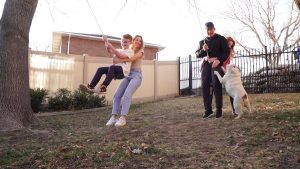
Former TV reporter Casey Scott plays in the backyard with his three kids Preslee, Frankie and Boden Scott. (KSL-TV)
“If you think your addiction is only affecting you, you’re fooling yourself. Addiction is selfish,” he said. “If you give yourself some sober time, you’ll realize the damage and the hurt that you caused for people who love you the most.”
Scott has now been sober for more than 900 days. “Recovery has given me more than I could have ever imagined,” he said. “Now family is everything. I can’t wait to see them. I can’t wait to hang out with them. I can’t wait to talk with them. I can’t wait to see who they become.”
He said the best part of sobriety is being present.
“When I look at my kids and we have the dance contests in the car, or I dropped my son off, or my daughter’s had a rough day and she’s the one to come to me and need help – those are genuine moments that we’re having, and if I was drinking I wouldn’t have those genuine moments,” Scott said.
As for Preslee, everything’s changed. She said the living environment at home is much better now and she actually enjoys spending time with her father.
“I can actually talk to my dad now and we have a lot more good conversations,” Preslee said. “I am so proud of my dad. I love the person that he is and I love being around him.”
Scott and Woolley confront addiction and reveal the power of true connection every week on the KSL Project Recovery podcast.

